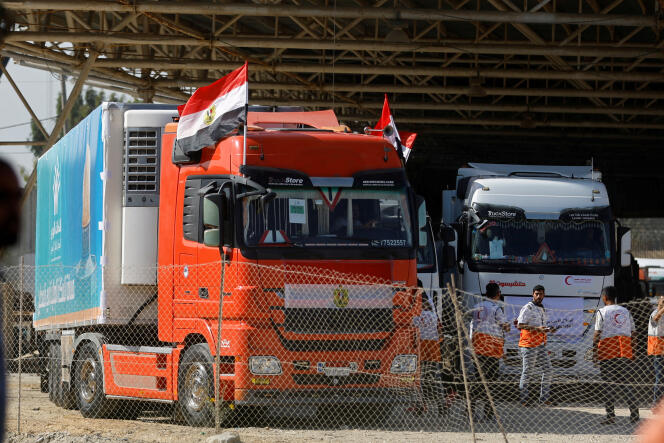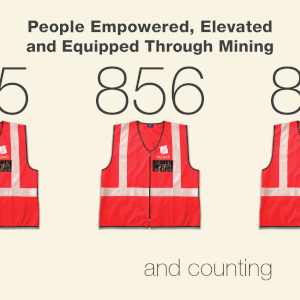Mirna Fahmy – Diplomatic Inside
Despite the warring economic circumstances Egypt has been immersed in, the country has never hesitated to reach out to Gaza for help since Israeli-Hamas’s war broke out.
Thrashing Hamas and liberating the hostages that were captivated by the October 7 attack are Israel’s top priorities to terminate the six-months prolonged war in Gaza. The killing of around 1,200 Israeli citizens and captivating 240 individuals won’t freeze Israel to kick off its vengeance. Anticipating the catastrophic consequences from day one since the start of the war, Egypt eventually loaded trucks to send them through the Rafah crossing in the Sinai Peninsula to help the two million Palestinians residing in the Gaza Strip.
In a statement released by the Presidential Spokesman, Counsellor Ahmed Fahmy announced that 80% of the aid and relief sent to the Gaza Strip comes from Egypt. Fahmy stressed that “the Palestinians are our brothers, and this is a political, moral, and humanitarian duty.”
Over 19,000 trucks have been transported through Rafah crossing so far since the commencement of the war, according to the Head of the State Information Service, Diaa Rashwan. Rashwan emphasised that the humanitarian aid included 19,952 tonnes of medical materials, 10,435 tonnes of fuel, 123,453 tonnes of food, 26,692 tonnes of water, 44,103 other relief materials, 2,023 tonnes of tents and candles, and 123 independent ambulances.
During Ramadan month, Rashwan stated the number of convoys reached 322, comprising all the necessities of aid. Under the supervision of President Abdel Fattah El-Sisi, the number of trucks shall be a minimum of 300 daily, starting on April 7.
In the beginning of the war, the process of delivering the trucks from Rafah was so intricate that Israel shot Egypt’s crossing borders several times to block the passage of any single item. Upon pressuring calls for humanitarian reaches and negotiations, especially after the visit of United Nations President Antonio Gutterres to Rafah, Israel finally subsided the attack on Rafah’s borders, but under the condition that no fuel shall be entered by any means. There were even Israeli inspections of the deliveries. Israel’s justification for that was that Hamas would use fuel to weaponize themselves, further firing at the soldiers from the tunnels they shelter beneath Gaza.
When the Israel Defence Forces (IDF) began showering missiles on Gaza, desolating many homes targeting Hamas in the tunnels and excavating the people towards the south in the direction of Rafah, there were calls from Israel Prime Minister Benjamin Netanyahu to shelter in Sinai temporarily till the war ends. Such suggestions are at loggerheads with Egypt. Al-Sisi has affirmed clearly, in a press conference with German Chancellor Olaf Schulz in Cairo on October 18, 2023, that displacing the Palestinians to Sinai means transferring the fight and begetting a base for attacking Israel, adding that the siege of the Gaza Strip ultimately aims to transfer the Palestinians to Egypt. He even warned of the continuation of military operations in the Gaza Strip and that they would have security and military repercussions that could get out of control. The Egyptian President explained that the matter would not be limited to the displacement of Palestinians from Gaza but would also extend to their displacement from the West Bank to Jordan. He pointed out that it is possible to transfer the Palestinians temporarily to the Negev Desert until Israel ends its operation in Gaza. Also, he added that the exodus of the Palestinians from their lands and cities will indicate the termination of the Palestinian cause, which has been fighting for its dependency for years.
This isn’t the first time this topic has been brought up by Netanyahu to an Egyptian president. In a leaked video on social media starring the former president Hosni Mubarak in an interview, he said that in a meeting with Netanyahu, the latter showed him a map pointing to evacuating Palestinians in Gaza to Sinai, and Mubarak eloquently disapproved of the idea by noting “no way,” preventing any further details from being discussed.
Sinai has been liberated twice. The first was from the Israeli occupation in 1973, and the second was from the terrorism occupant in 2018. The Law Enforcement Forces began implementing a series of operations on the morning of Friday, February 9, 2018, to confront terrorist elements in North and Central Sinai and other areas in the Egyptian Delta and the desert hinterland west of the Nile Valley, with the aim of tightening control over the Egyptian state’s external ports of entry and all strategic directions and cleansing the areas in which terrorist elements are located.
The reason for this needed operation is that this land has forsaken many sheds of blood in the last decade of many Egyptian citizens and army soldiers at the hands of Islamist terrorists.
Henceforth, movement, especially through the borders, is a bit controlled to intercept any suspicious behaviour in the region that might inflict a national security issue amid the suffocating economic circumstances including its currency devaluation, price hikes, inflations and soaring debts that Egypt is passing. Not to mention, the country is immersed in a very unique geographical position where all the surrounding nations are clashing in endless civil wars like what’s happening in Sudan, Libya, and the regular Israeli-Hamas conflicts.
After many negotiations with Egypt from many European, Japanese, and American sides, Palestinians and foreigners who hold dual nationalities and passports shall pass through and leave immediately for the countries that host them.
Providing medical assistance, Egypt accepted injured Palestinians to its hospitals, either in Sinai or other cities since the war broke out. The spokesman for the Ministry of Health in Egypt, Hossam Abdel Ghaffar, said that the Ministry receives between 40 to 50 cases or even more daily from Palestinians injured as a result of the war in Gaza, noting that the cases are distributed to hospitals in the cities of Al-Arish, Bir al-Abd, Sheikh Zuweid, Port Said, Ismailia, and Cairo.
The Ministry of Health provided ambulances equipped to transport the injured from the Rafah crossing to nearby hospitals in the North Sinai Governorate.
Abdel Ghaffar added that the Ministry has been providing psychological support teams for the injured, especially for cases that lost loved ones or lost body parts as a result of the bombing, pointing out that 40% of the infected cases that arrived in Egypt were children, and precise and specialised surgeries were performed for a large number of the injured.
Egypt even installed a field hospital at the Rafah crossing to cater for wounded Palestinians and offer complete medical care. It also agreed to dock a Turkish ship loaded with medical aid in the port of Al-Arish, carrying 20 ambulances on board and 20 fully equipped field hospitals to receive cases from injured Palestinians, according to an official statement by the Egyptian Ministry of Health.
An official medical source in North Sinai said that Palestinian injuries that were examined so far varied between fractures, wounds, burns, amputation of limbs, eye injuries, heart disease, birth defects, asthma, paralysis, joint stiffness, convulsions, and cancerous tumours.
Furthermore, wounded, sick people and oncology patients including children, are being transferred from Al-Aqsa, European, Al-Najjar, and Turkish Friendship hospitals for treatment in Egypt’s hospitals of Al-Arish General Sheikh Zuweid, Al-Hayat in Port Fouad, Oncology in Kafr El-Sheikh, Assiut University, Health Insurance in Fuwah, May 15 in Cairo, and the Emirati ship, along with their companions.
The source indicated that 387 Palestinians with residency permits in Egypt and a number of Arab and foreign countries were received, in addition to 35 people with foreign passports and 80 people with Egyptian passports.
It pointed out that since the beginning of the Israeli aggression on the Gaza Strip, Egypt has received more than 4,000 injured and sick people from Gaza for treatment in Egyptian hospitals and a number of sisterly and friendly countries, along with about 6,000 companions, in addition to the crossing of 29,000 Palestinians, both foreign and dual nationals. About 6,000 Egyptians are stranded in the Gaza Strip.
Politically, Egypt demonstrated oral documents at the International Court of Justice (ICJ), led by Jasmine Moussa, the Legal Advisor at the Ministry of Foreign Affairs, regarding the advisory opinion requested by the UN General Assembly on Israeli policies and ‘Brutal Onslaught’ towards the Palestinians. She highlighted the actions by the Israeli side impeding the convoy’s deliveries and access to the Palestinians, debunking Israel’s accusations that Egypt evaded the thousands of aid commuters.
In a statement issued by the Ministry of Foreign Affairs on April 18, Egypt expressed its deep regret following the inability of the Security Council, against the backdrop of the United States’ use of its VETO, to issue a resolution enabling the State of Palestine to obtain full membership in the United Nations. Egypt affirmed that recognising the Palestinian state and approving its full membership in the United Nations is an inherent right of the Palestinian people, who have suffered from the Israeli occupation for more than 70 years, and an important step on the path to implementing the provisions of international law and the recognised resolutions of international legitimacy to establish the two-state solution and preserve the rights of the Palestinian people.


